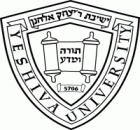Sanctity of life
Medical ethics conference highlights “End of Life” challenges
By Yaffi Spodek
Issue of Sept.19, 2008
Close to 300 people attended the third annual Medical Ethics conference at Yeshiva University on Sunday. Entitled “Sanctity of Life,” the conference ran from 9:30 a.m. until 3:30 p.m. and focused on the halachic approach to end of life challenges, with several sessions moderated by various experts in the field.
Introductory remarks were delivered by Avi Amsalem and Rifka Wieder, YU students and co-presidents of the Medical Ethics Society. They referenced Parshat Ki Teitzei, which teaches of the importance of preserving the dignity of our fellow human beings in times of crisis and death, as even a criminal is accorded the respect of one created in G-d’s image.
“With six breakout sessions, an adult end of life plenary session and a pediatric end-of-life breakout session, we created an environment conducive to academic growth and intellectual stimulation in an intimate and comfortable setting in order to assist people in gaining a more profound understanding of the intricacies of the topic,” Wieder told The Jewish Star, reflecting on the success of the event.
Woodmere resident Rabbi Dr. Edward Reichman, conference program director and associate professor of emergency medicine at YU’s Albert Einstein College of Medicine, opened the symposium by discussing how scientists and doctors believe that they can now control when man dies.
“Our objective today is to discuss the halachic issues of this extremely important topic,” he said, referencing the “u’netane tokef” prayer of Rosh Hashana and Yom Kippur, which focuses on who will live and who will die in the coming year.
Rabbi Reichman introduced the panel of speakers who participated in the first plenary, “Moments That Matter: Adult End of Life Challenges” which included Dr. Beth Popp discussing clinical palliative medicine, Dr. Tia Powell focusing on ethics, and Rabbi Dr. Moshe Tendler presenting the halachic issues involved in end of life care.
A series of breakout sessions followed on health care proxies/DNR orders, assisted suicide, end-of-life medical decisions, pain management, organ donations and a question and answer session specifically for rabbis.
After an hour-long lunch break, Plenary II, “Who Decides and What to Say?!” commenced, focusing on pediatric end of life Challenges. Moderated by Dr. David Pelcovitz, speakers included Rabbi Kenneth Brander, Dr. Alexander Okun, Rabbi Simcha Scholar of Chai Lifeline, and Rabbi Mordechai Willig.
The Medical Ethics Society was founded in the fall of 2005 with the help of the Center for the Jewish Future. Its primary goal is “to create a dialogue between laypeople and professionals, to promote education and awareness of current medical ethics and their intersection with Halakha, not only within the YU community, but in the global community as well,” Wieder explained.
Over the past three years, the society has hosted diverse programs and on-campus lectures by leading experts in the field of medical ethics and halacha. Topics covered have included stem cell research, cloning, genetic testing, pre-implantation genetic diagnosis and birth control. The society also coordinates genetic testing events through the organization Dor Yeshorim, as well as New York University Medical Center, to help combat the high incidence of various genetic diseases in the Jewish community.

 48.0°,
Overcast
48.0°,
Overcast 




